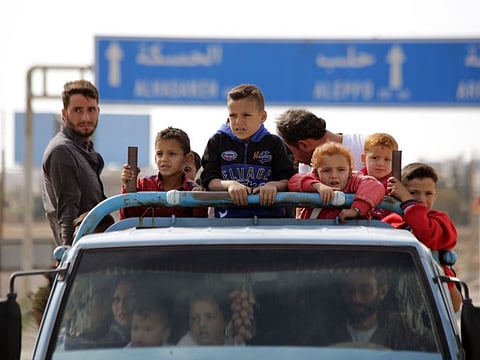Deal with Damascus paralyses Kurdish push for autonomy
Damascus insists the Kurds have to surrender their arms and reincorporate into public life

The Turkish invasion has weakened the Kurdish position considerably which is a main reason why they were forced to surrender to the Syrian government.
This puts an end to the Kurdish dream of establishing an autonomous country in Syria, known as Rojava.
Eying the success of Iraqi Kurds, they sought self-rule on Syrian territory. Now deprived of US military cover, the Kurds, in face of total annihilation, have turned to the Syrians and Russians, seeking their protection.
This is a huge victory for Syrian President Bashar Al Assad because this effectively restores all the country’s lucrative oilfields under government control.
That money will be used to pay wages, fund reconstruction, and generate both electricity and heating fuel for a country reeling from a devastating civil war.
What will happen to the Kurds now?
Damascus insists the Kurds have to surrender their arms, and to re-incorporate into public life, as Syrian citizens.
Technically, Kurdish political parties are all illegal, since Syrian law prohibits political parties created on ethnic or religious lines. Whether they are maintained or dissolved is yet to be decided.
Despite achieving huge gains towards autonomy while it was cooperating with the Americans in the fight against Daesh, it seems that in the blink of an eye these gains were reversed and the Kurds are seemingly back to square one.
Will the Syrian and Turkish armies clash?
Analysts believe this will be highly unlikely.
“Turkey’s interests are still aligned to the Astana troika (with Russia and Iran). The chances of confrontation with the Syrian army are slim,” Amer Elias, a Damascus-based political analyst, told Gulf News.
“There are no indications that the Turks will go any further than Ankara’s stated objectives,” said Murhaf Jouejati, a prominent Syrian professor at the Emirates Diplomatic Academy.
Whether the Kurds are driven away by the Turks, Russians, or Syrians does not really matter for President Erdogan.
What’s important to him is that the entire border strip is Kurdish-free.



